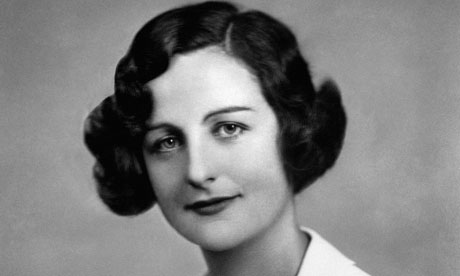
This novel opens with the declaration of the second world war, but Mitford completed it by Christmas 1939. Her frivolous confection was not intended to mock the conflict itself, which was a less welcome object of satire by the time of publication in May 1940.
Indeed, from its outset the war devastated the Mitford family: on its first day, Nancy's Hitler-besotted sister Unity shot herself in the head. By contrast, the novel's aristocratic heroine, Sophia, continues largely as before, in a whirl of pink champagne and nightclubs, even though she is obliged to spend the days volunteering at a first aid post (as Nancy herself did). Sophia and her Hitler-admiring husband enjoy an open relationship, in contrast to Mitford's marriage, which foundered the same year amid infidelity on both sides.
Bored, without a sniff of war action, Sophia sets about unravelling the German spy network that appears to be operating out of her own house in London. She is the ideal instrument for a knotty scheme of espionage and counter-espionage, being credulous and none too bright, while any peculiar behaviour is unremarkable to her because the novel is populated by self-absorbed eccentrics – a typical Mitford feature, which reached its zenith in her career-defining novels The Pursuit of Love and Love in a Cold Climate.
Although Mitford's wit is out in force, her satirical edge is less subtle and incisive than it was to become. Nonetheless, she remains clear-eyed through the droll chaos: even the idiotic Sophia smells a new world beyond the war, when rarified lifestyles such as her own will be but memory.

